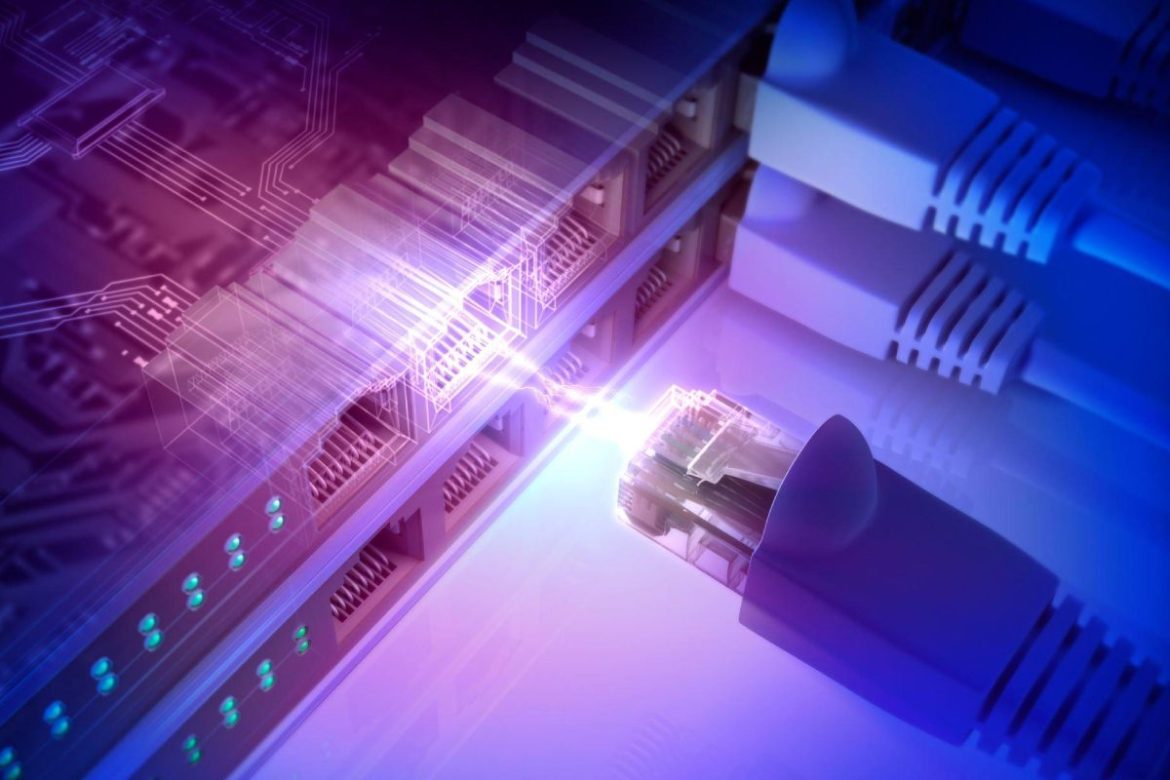IT networks need high-speed transfer to move more data from the computer to the data center. The proper infrastructure cables will support optimum performance and speed. Ethernet has remained popular, and new versions with improved performance are released every few years.
Cat8 cable is a common choice since its copper cables provide a bandwidth of more than 2000 Mbps. But is Cat8 cabling the best option for your office network? Keep reading to learn more.
Table of Contents
What Is A Cat8 Cable?
It is the most recent IEEE standard for copper ethernet cable. It significantly improves data transmission speed compared to the older Cat6a and Cat7 cables. It is backwards compatible with earlier standards and uses regular RJ45 connectors.
Cat8 cable’s shielded twisted pair (STP) uses a layer of conductive material as part of the cable jacket. It covers the internal conductors against electromagnetic interference (EMI). As a result, data is transmitted at higher speeds and with fewer errors.
The cable also wraps every twisted pair in foil, eliminating crosstalk and allowing faster data transfer rates. As a result, the line has a larger gauge, is stiffer, and is challenging to install in tight areas.
What Speed Is Cat8 Cable?
It is the speediest ethernet cable available. It supports a data transmission speed of up to 40 Gbps, four times quicker than Cat6a. Its bandwidth offers up to 2 GHz (four times faster than the typical Cat6a), decreasing its latency for signal quality.
Cat8 Additional Benefits And Applications
IT professionals use Cat8 ethernet for switch-to-switch connectivity in server rooms and data centers where 40GBase‑T and 25GBase‑T networks are famous. Its standardized RJ45 endpoints are helpful when upgrading networks without having to revamp the equipment thoroughly.
The cables feature PoE technology, making it easier to install them and allowing for space savings in server rooms.
PoE With Cat 8
Power over Ethernet (PoE) technology is compatible with Cat8 cable and allows for data and power delivery on a single line. The cable can reduce the need for power connections, free up space in packed server rooms, and simplify edge computing installations. It can connect to PoE devices even if they are not conveniently close to an AC power source.
What Are Cat8 Cable Limitations?
The maximum channel length is 30 meters (98ft), and the full permanent link length for Cat 8 cable is 24 meters (78 feet). Compared to other types, the cable is significantly shorter, with a length of 100m (328 feet). It is also quite stiff, making installation and termination more difficult.
Additionally, no unshielded Cat8 cables support the 40 Gbps data transmission. IT professionals must use caution when connecting Cat 8 cables to their network during shield terminations.
Is Cat8 Ethernet Cable Worth It?
Cat8 is more economically viable for data centers and businesses that require more than 10GB of data throughput. Other cables are much better suited for domestic applications but must match with Cat8 regarding speed and frequency.
The cable’s RJ45 connections, which work with new and old hardware, devices and systems, are its most important benefit. It can improve the performance of your office network without wearing out the equipment.


